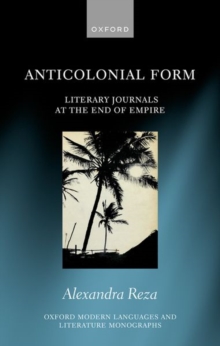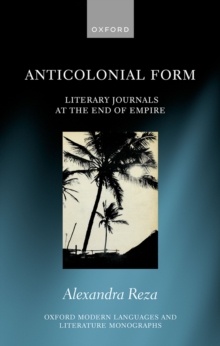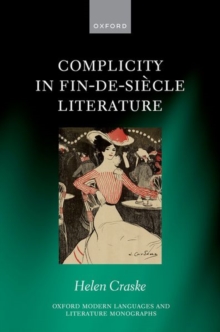
Dissident Authorship in Mozambique : the Case of Antonio Quadros (1933-1994) EPUB
by Tom Stennett
Part of the Oxford Modern Languages and Literature Monographs series
EPUB
Description
Dissident Authorship in Mozambique: the Case of Antonio Quadros is the first monograph on the literary works of the pennames of Portuguese poet and painter Antonio Quadros (1933-1994).
The book uses Quadros's quirky case- a Portuguese man who lived in colonial and post-independence Mozambique, where he published poetry and prose under three pennames-Joao Pedro Grabato Dias, Frey Ioannes Garabatus, and Mutimati Barnabe Joaoto-toexamine the question of what it means to be an author in Mozambique and how authorship changed after the end of Portuguese colonial rule.
Quadros's engagement with the question of the authors' place and function in authoritarian contexts stands as a fruitful counterpoint to the influential essays by Roland Barthes ('The Death of theAuthor', 1968) and Michel Foucault ('What is an Author?', 1969), the publication of which coincided with Quadros's literary début in 1968.
Quadros's interesting and useful contributions to the question of Mozambican authorship are analysed in historical context and read alongside postcolonial and decolonial theory. Tom Stennett address the political implications of Barthes's and Foucault's erasure of authorial identity and their respective challenges to authorial authority.
He makes the case for an approach to the question of authorship that takes into account the anonymous agents and institutions—such as editors, political parties and the State—that are involved in the conferring of authority onto certain authors and readers.
In contrast to much extant scholarship on Mozambican authorship, which hastended to focus on questions related to identity and canonicity, Dissident Authorship addresses these themes as well as those of readership, authority, power, and representation.
Information
-
Download - Immediately Available
- Format:EPUB
- Pages:160 pages
- Publisher:OUP Oxford
- Publication Date:01/11/2023
- Category:
- ISBN:9780198885924
Other Formats
- PDF from £46.04
Information
-
Download - Immediately Available
- Format:EPUB
- Pages:160 pages
- Publisher:OUP Oxford
- Publication Date:01/11/2023
- Category:
- ISBN:9780198885924










